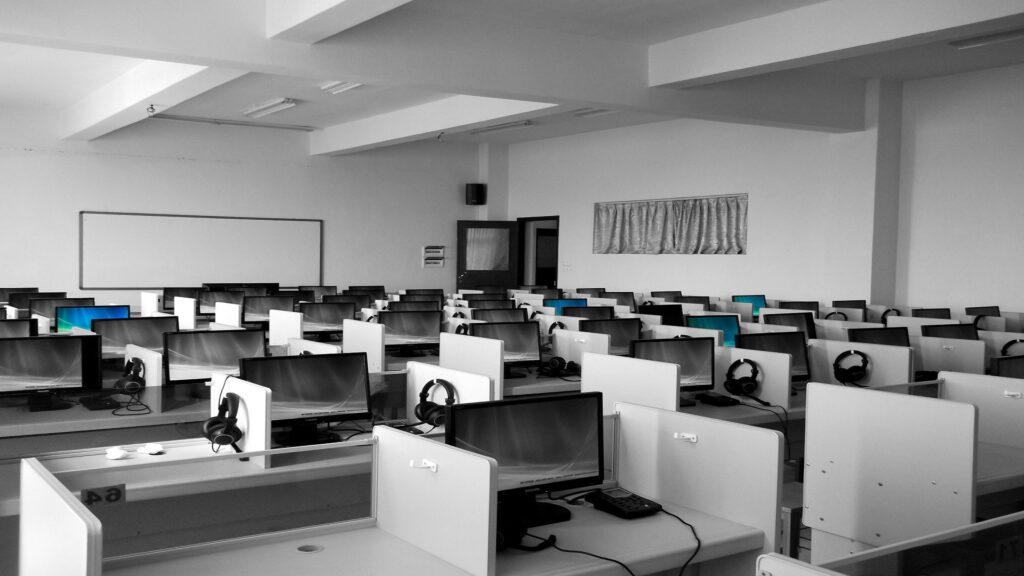
Marketing Executive at Xenia Tech – an offshoring development agency based in London, Da Nang and Ho Chi Minh City, Vietnam. We are experts in Web/App development. With an industry-standard outsourcing process, we have been making great products since 2017 for clients all over the globe.
A very time appropriate question that I am sure most employers that use office space have asked themselves a few times in the last year minimum if not even longer.
In Office, Convenience or Need;
For the employers themselves there is much to be considered. Let’s assume that the business could not go fully remote and therefore must have some form of office available. The benefits of having an office are not as many and necessary as the past. As an employer you still want to see your staff working and attending their place of employment and also need to be able to regularly see them to touch base with them in person. Being able to converse with staff or a team in person is much more productive and valuable than a skype or zoom meeting unless it is a brief meeting. As you can get to the point quicker and all be on the same page without interruptions and the likes.
Having a stacked bull pen means communication is more simple as easy questions with easy answers can be asked in person without the lag of emails or messages and if people are working remotely they may not be able to answer calls directly or emails if they were taking advantage of not being in the office or simply driving therefore can’t use their phones. Having an actual stable place of work is generally better for staff in their whole life setting as there is a routine, even if it only a hybrid office system of being in the office half of the week and home/remotely for the other half, it gives a purpose to get up in the morning and take care of work and other areas of life, this translates into personal lives where if you are working remotely it may mean you can take care of personal items during the day when you couldn’t if you were required to be tied to the office, this cannot just help build productivity and happiness at work but also at home if you are able to spend more time with spouses and kids or family.

There’s No Place Like Home;
It is all about having a balance where the employer is happy as the work is being completed in a similar time or faster with the same but hopefully better quality. The employee also needs to be happy with the situation too. They may well live in a very expensive city where their living area may not be the most conducive to a working environment and are roaming around coffee shops and parks to get some quiet and work done. Or they may have young children who don’t give them any time to think. Working from home could create strains on home relationships that didn’t exist before, all options need to be considered. Different people thrive in different environments.

Tech In Your Hand;
Depending on the type of work you do, you may well be able to work fully remotely with the vast options of tech at your fingertips. On a basic smartphone alone you can take care of emails, calls, data messages, photography (photo editing), video meetings, social media, writing reports and assessments, company scheduling via online calendars, use of Microsoft office tools such as Word and Excel depending on the type of phone and the good old calculator that your schoolteacher told you that you would never carry on you! These days you can effectively tap into another computer very easily and therefore access your work facilities from anywhere around the globe (If you ask Mr Bezos nicely and pay a small fortune, space also). This means that there is essentially no excuse for not being able to get a vast majority of office related work completed remotely.
Between a laptop or tablet and a mobile phone you should be able to achieve a reasonable amount out of office, but there is always going to be times where not everything is digital and you need to view hard copies or use specialized equipment available in your office.
Take a Penny, Spend a Penny;
There are financial implications to keeping a full office, down-sizing and going hybrid and removing the office completely. The main benefits are clear for employers, smaller offices mean less electricity, equipment, maintenance, rent, insurance etc. An employee will also save on travel costs that depending on where you live can be astronomical and outweigh working at home with one hand constantly in the fridge and burning your own electricity.

Social Circles or Being a Square?
While that all sounds jolly and positive, it isn’t all puppies and rainbows. Staff morale will likely drop considerably if they are used to coming to work and seeing colleagues, making new friends, maybe meeting that special someone. Once the novelty of not being constrained by being in the office, a lot of people might find they slip in to not really having much of a social life if it used to heavily involve office colleagues. No more beers after work or Friday night karaoke. For a lot of people, especially if straight out of university and in a perhaps a new city needs ways to create a social circle, it is not easy if you work where you live, you may well have the flexibility to go out whenever you choose but that can have a negative “Manana” impact on productivity. If you are slightly disciplined and can have a routine or a separate working space at home or elsewhere working remotely can have a great impact on your life, no excuses of it’s too hot or cold at work, out of coffee, too noisy etc. You are in control of the environment to get the best out of yourself using the tech available to you and if you aren’t sure of something, you can always google it without a colleague noticing that you may not know the difference between UX and UI, rectified in seconds without being questioned.





